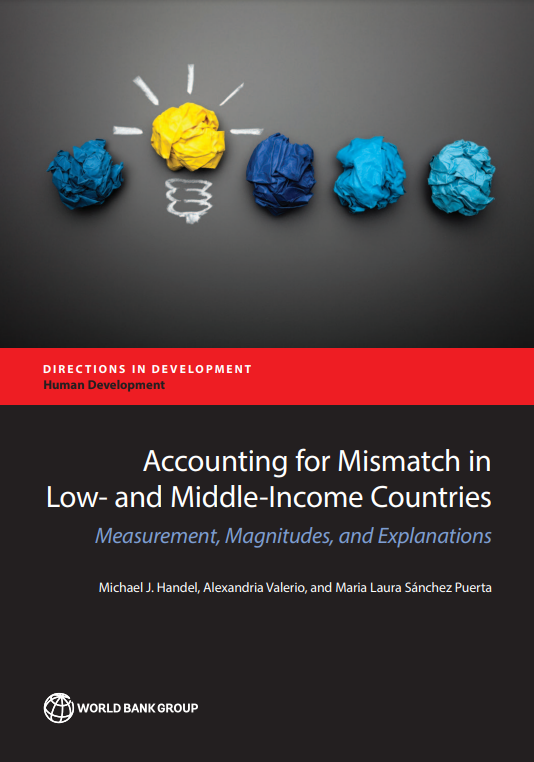Accounting for Mismatch in Low- and Middle-Income Countries
Editorial: The World Bank Group
Licencia: Creative Commons (by)
Autor(es): Handel, Michael; [et al.]
To stimulate economic advancement, low- and middle-income countries need well-educated and trained workforces to fill the types of skilled jobs that drive economic growth. Improving educational quality and attainment and providing better training are all rightly put forth as policy recommendations to leverage economic growth and job creation. However, new findings based on large scale surveys of adult skills from the World Bank Group's STEP (Skills toward Employment and Productivity) Skills Measurement Program suggest that many workers are overqualified for their current jobs (based on the education those jobs require). The results of this study suggest that countries may not reap as much benefit from their investments in quality education and training if weak job creation leaves workers' skills underutilized. Most of the literature on mismatch focuses on higher-income countries and rates of over-education among college graduates. Accounting for Mismatch in Low- and Middle-Income Countries uses new STEP Skills Survey data from 12 low- and middle-income countries, representing a range of economic and educational and training climates, to better understand the scope and patterns of education and skills mismatch. STEP collects information not only on workers' level of education and employment status, but also on the types, frequency, and durations of tasks they carry out at their jobs as well as some of the cognitive skills they use. The study also explores additional factors such as gender, health, career stage, and participation in the informal labor sector that may help explain the degree of mismatch rates. The study's findings indicate that over-education is common in low and middle income countries with both lower and higher rates of educational attainment. There is also evidence that over-educated tertiary workers do not use all of their skills, potentially wasting valuable human capital and educational resources. Aimed at policy makers, business and education leaders, and employers, Accounting for Mismatch in Low- and Middle-Income Countries suggests that job growth must go hand-in-hand with investments in education and training.
[Washington: 2016]
Compartir:
Una vez que el usuario haya visto al menos un documento, este fragmento será visible.


